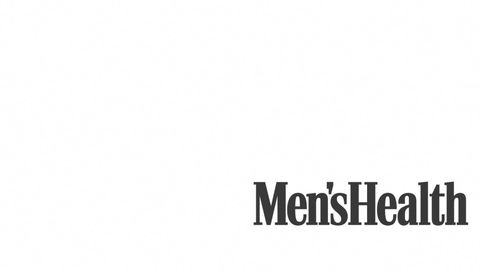ZINC IS A mighty mineral that is vital to our wellbeing.
It is found in every cell of the human body and “is involved in hundreds of different metabolic processes at the cellular level,” Olivia Baker, R.D., at the Mayo Clinic. Healthy immune function, eyesight, skin and hair are all a result of sufficient amounts of this powerhouse mineral. It even reduces inflammation in the body, and is essential for our sense of smell and taste.
“Zinc is an essential nutrient because our bodies cannot produce it or store it,” says Joanne Keaveney, R.D., at Boston Medical Center. “Therefore we must get a constant supply in our diets.”
More From Men’s Health

Zinc does some impressive feats for our bodies. It’s responsible for the creation of DNA, the growth of our cells, and help in healing damaged tissue. It’s been widely found to have an effect on our immune system—but scientists are still investigating exactly how it works.
“It is considered an antioxidant, which means it helps protect your body from damage caused by free radicals,” says Baker. While zinc may reduce the duration of a cold, it’s not proven to prevent sickness.
Zinc-rich foods include beef, poultry, pumpkin seeds, fortified breakfast cereals, and seafood (in fact, oysters contain more zinc than any other food). Because zinc is found in so many foods, deficiency in the United States isn’t common—but it does exist.
“Zinc is better absorbed from animal-based foods than plant-based, as the phytates found in plants can bind zinc and reduce its absorption,” says Baker. So, vegetarians and vegans can be at risk for a deficiency since the highest amounts of zinc are found mostly in meat, and may benefit from supplementation.
If you’ve been directed by a doctor or registered dietitian to add a zinc supplement to your diet, here’s what you need to know about when and how to take it.
What Is Zinc?
Zinc is a prevalent and potent essential trace mineral, meaning the body needs only a small amount to reap its benefits. ‘Essential’, in this case, means that our bodies can’t make zinc, so we have to obtain it from our diets.
“Most of our zinc is stored in our muscles and bone, though zinc is present in almost every organ as well,” Denise Millstine, M.D., director of Integrative Medicine at the Mayo Clinic.
When Is the Best Time to Take Zinc?
When you take your supplement doesn’t really matter, as long as it’s at a time of day that you can remember to take it. If you’re a bit cloudy in the mornings, you may benefit from taking it at night. If your nights are chaotic with making the kid’s bedtimes, you may benefit from taking it in the morning. As long as you actually take it, you’re golden.
You will want to watch out what other supplements you’re taking in conjunction with your zinc, too. Some may interfere with proper absorption of the mineral. “If you are taking other supplements, especially iron or copper, you want to space them out by at least two hours from each other to ensure appropriate absorption,” said Millstine.
How Should Zinc Be Taken?
It is best to take a zinc supplement on an empty stomach, according to Millstine. When zinc combines with certain foods, such as fiber-rich beans, its absorbency is inhibited. But, if you get nauseous when you take vitamins on an empty stomach, it’s not going to harm you to take it with food.
Remember, too, that food first is the best policy. Prioritize adding good sources of zinc to your diet before considering supplementation. If you do need to supplement, Keaveney recommends avoiding zinc nose sprays, which can cause loss of sense of smell.
Should I Take a Zinc Supplement?
That all depends on your levels.
You’ll need to take a trip to your doctor or dietitian to find out if you need a supplement—especially if you don’t commonly eat zinc-rich meats and animal products. A few telltale signs of zinc deficiency include poor immune function, undesired weight loss, slow-healing wounds, hair loss, and loss of taste and smell, says Keaveney.
People with Type 2 diabetes and certain gastrointestinal disorders, such as Crohn’s disease or colitis, as well as those who have had bariatric surgery, may be also at risk of zinc deficiency. Excessive alcohol consumption can also reduce zinc’s absorbency so people with alcohol use disorder and alcoholism are at risk of deficiency, said Keaveney.
Long term supplementation of zinc can create other mineral imbalances, so it should only be used for deficiency short term. To find out if you are deficient in this powerhouse nutrient, check with your doctor for a blood test that will reveal your zinc levels. They’ll be able to tell you the proper amount to take, and how long to take it for.
What Is the Proper Dosage of Zinc?
We need to ensure we’re getting enough zinc, but taking too much could result in stomach upset, loss of appetite, nausea and dizziness. Too much zinc can also reduce the body’s absorption of magnesium and copper—two other essential nutrients which assist with maintaining the health of our bodies and brains.
“The most worrisome side effect of taking too much zinc is anosmia, or an absence of smell, which is irreversible,” said Millstine.
Typically, an adult male needs 11 milligrams per day, according to the National Institutes of Health. Between supplements and foods, make sure you’re not going north of 40 mg, which is the tolerable upper limit, according to Millstine. Talk to your doctor about the appropriate supplementation amount for you.

Erin Kenney is a Registered Dietitian, personal trainer, and CEO of Nutrition Rewired, a virtual private practice where she helps individuals achieve optimal levels of health and human performance. She takes a holistic approach and helps clients address health concerns from a root cause perspective. She works with athletes, CEO’s, fortune 100 companies, and everyday individuals looking to achieve optimal health.
